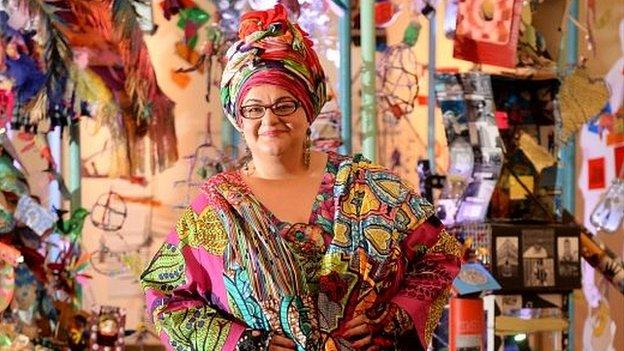Kids Company concerns raised as early as 2002
- Published
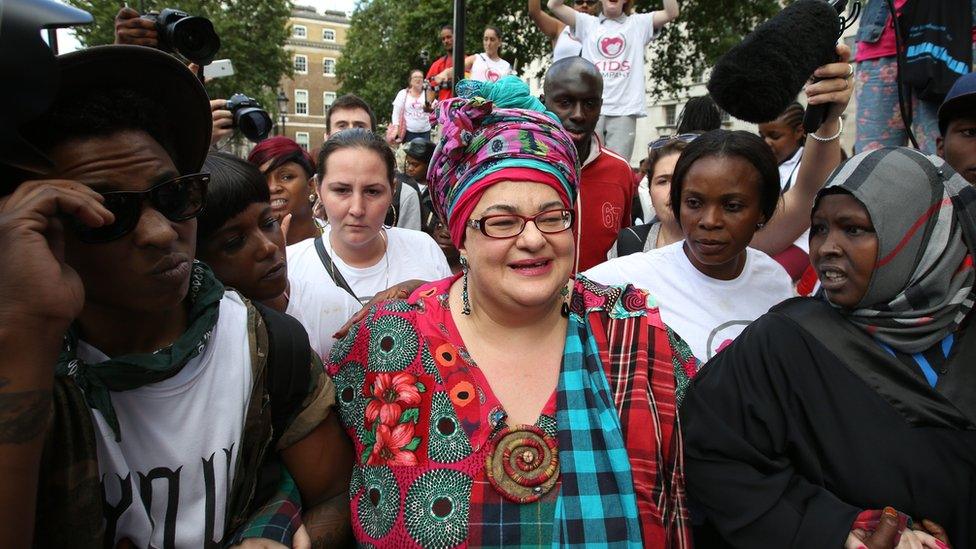
Camila Batmanghelidjh founded Kids Company in 1996
Problems that led to the collapse of Kids Company were raised with trustees as early as 2002, documents seen by BBC Newsnight and BuzzFeed News show.
The trustees were alerted to criticism of management and use of funding at the charity, which provided support to vulnerable young people.
Kids Company says it disputed the claims at the time.
MPs will quiz founding chief executive Camila Batmanghelidjh and chairman of trustees Alan Yentob on Thursday.
The files variously complain of a lack of "experience or seniority", "weak finances, conflicting information about numbers of users, the absence to date of any internal attempt even to track and record results", and stated that its "continued existence" was "a triumph against the odds".
The charity collapsed suddenly in August , just days after receiving a £3m restructuring grant from the Cabinet Office and in the midst of a police investigation.
Officials are now attempting to retrieve that grant which was controversial as it was signed off by ministers, Oliver Letwin and Matthew Hancock, against the advice of civil servants.
Officials also believe that, in the charity's final days, this grant was used to prop up the organisation, rather than for the purposes for which it was agreed. They had hoped to recover £1.8m of the grant from the official receiver.
Ms Batmanghelidjh and Mr Yentob, also the BBC's creative director, are due to be questioned on Thursday morning by the House of Commons Public Administration select committee.
A spokesperson for Kids Company's leadership said: "The two reports you quote are 13 and nine years old respectively."
The age of the documents, however, raises questions about why problems identified years ago - and known to the trustees - were not addressed before.
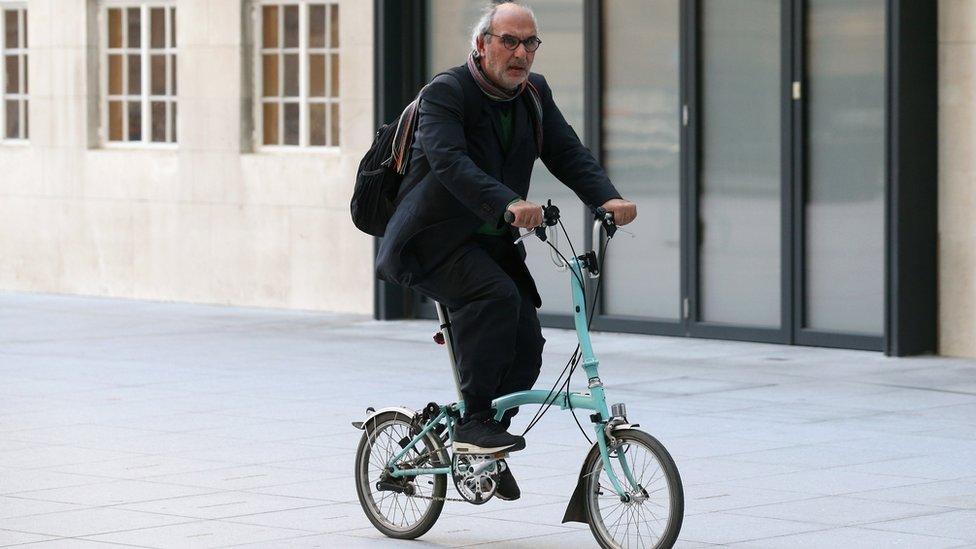
Alan Yentob has described suggestions of financial mismanagement as "complete rubbish"
The earliest of the documents involves the Pilgrim Trust, a charity which disburses around £2m a year.
The Pilgrim Trust agreed in January 2001 to fund two employees for two years to work on a specific project at a cost of £30,000 per year.
The relationship, however, soured amid concerns about whether the money was being used as intended. They eventually cut the charity off.
'Confusion'
Notes from within the Pilgrim Trust reveal that its staff regarded Kids Company's behaviour as "suspicious" even before the first grant was paid.
Documents seen by BBC Newsnight and BuzzFeed News show the charity provided a litany of excuses for not supplying them with information, ranging from a "specific learning disability" which prevents Ms Batmanghelidjh from using a computer keyboard, to a bank manager responsible for reproducing withdrawal slips "falling off a roof and [being] off sick".
On one occasion in August 2002, Ms Batmanghelidjh said that £71,390 of income was scored in the wrong financial year in their accounts "because of the confusion which arose at the time."
"Our bookkeeper at the time mistakenly recorded some loans as donations," she said.
Georgina Naylor, director of the Pilgrim Trust, wrote to the Charity Commission on 6 December 2002, stating: "In the absence of financial acumen from the Director of Kids Company, my colleagues were not convinced that the staff in place at the organisation had sufficient experience or seniority to deal with such complex matters."
She added: "I have also been told by a fellow foundation director that one of the two directors/trustees listed in the accounts resigned some four years ago and has not spoken to Camila since."
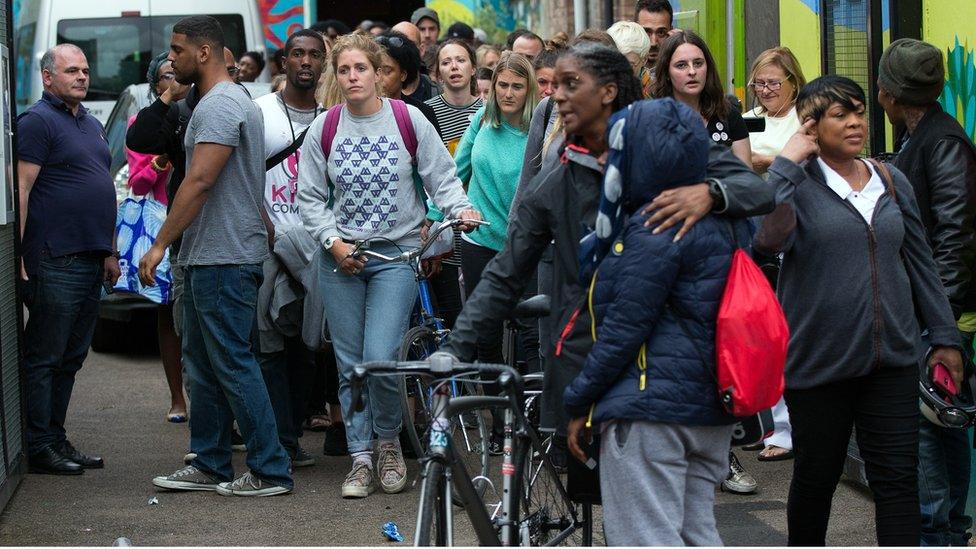
Kids Company's collapse meant the closure of 11 centres in London and Bristol
In a turn of events which foreshadowed the failed attempt to bail out the charity this summer, the letter also alleges that ministers overruled civil servants to bail out Kids Company more than a decade ago with a £300,000 grant.
In her December 2002 letter to the Charity Commission, Ms Nayler summarised this: "We received a letter dated 28 May [2002] from Camila… saying that the Home Office auditors had looked at the finances and a grant had been agreed."
The letter continues: "We spoke to the relevant department in the Home Office and were told by a civil servant that the finance people who had looked into Kids Company were not at all happy and had recommended that no financial assistance be given. This recommendation was overturned by ministers and a grant offered to stop the organisation becoming insolvent."
Civil servants have been attempting to get details of this decision in order to clarify which ministers were involved.
In 2003, the Charity Commission replied briefly to the Pilgrim Trust. With regard to their concerns about accounting irregularities at Kids Company, it wrote that it was "working with the charity to provide advice and guidance about its general position and the requirement to comply with the Statement of Recommended Practice".
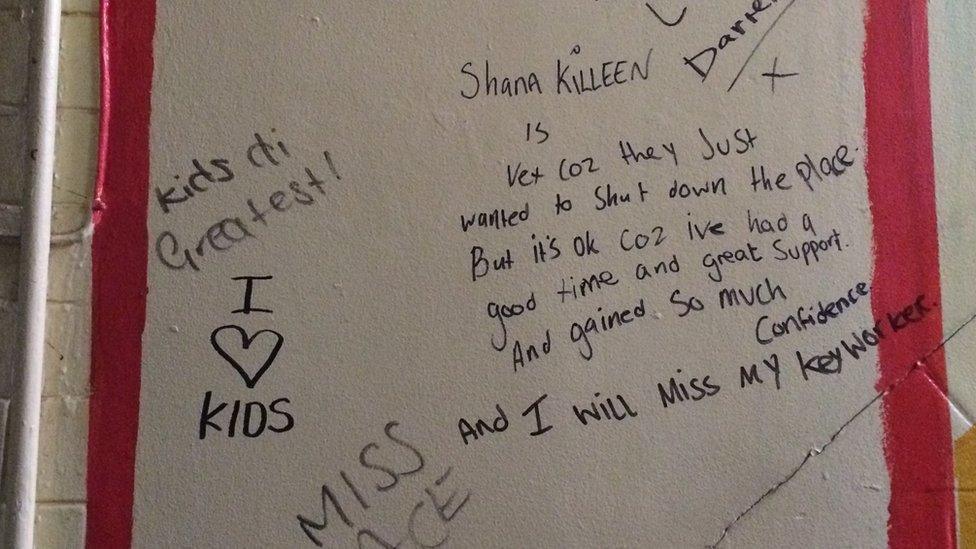
The charity's supporters said many vulnerable young people had been helped by its service
In 2006, another charity, New Philanthropy Capital (NPC) raised other concerns in a private report sent only to Kids Company trustees.
NPC, which advises donors and trustees on how to improve their charity's management and performance, wrote: "Many of the commendable aspects of Kids Company are attributable to Camila. Many of the problems though are also attributable to Camila."
It adds: "Weak finances, conflicting information about numbers of users, the absence to date of any internal attempt even to track and record results, over-reliance on one member of staff and lack of any strategic planning all threaten its long-run sustainability."
It added: "Although the organisation has survived for 10 years, it has many problems and its continued existence is a triumph against the odds, and a testament to its wealthy and influential donors".
NPC also raised concerns that restricted funds - money that must be spent on set projects - were not being spent as intended.
'Anecdotes and case studies'
NPC said: "The Invest to Save Budget grant of £3.43m made by the Treasury in 2005 is largely in response to [a] lack of overall outcome data: seeking to establish, once and for all, Kids Company's effectiveness and replicability."
But, they noted, the grant was being used to cover "both a shortfall in other sources of income and partly paying for the increase in services".
The report continued: "Both outputs and outcomes measurement has been poor in the past, relying on anecdotes and case studies. Even accessing basic numbers of users has proved extremely problematic."
This theme continued to the end - when it closed, the charity claimed to have been supporting 15,933 young people "intensively", however, a handover process to London councils only came up with 1,699 clients.
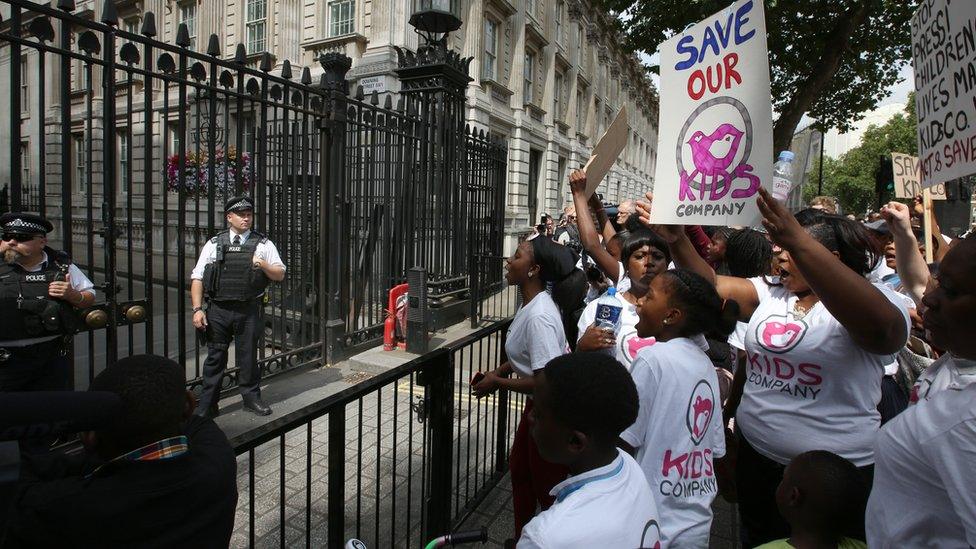
Supporters of the charity marched to Downing Street shortly after its closure
NPC raised further concerns about the charity's use of cash handouts. The report stated: "NPC has heard from more than one source that some clients simply turn up each week for a cash handout, without engaging with any of the charity's staff or programmes, and thus not benefitting from their support. Concern has been expressed that a cash handout may be abused, either by the recipient or by those who know that these vulnerable children have access to cash."
Since the charity's closure, the use of cash handouts has been linked to drug use by clients: one former client told Radio 4's The Report in August that the days when money was handed out were "weed heaven".
NPC also notes the importance of effective safeguarding procedures, particularly with regard to violence.
It notes the "operational risk" of its model, and that "a single incident could seriously damage the viability of Arches II [one of the Kids Company sites]".
Cash buffer
Kids Company's leadership now blame a police investigation into allegations about potential crimes - both violent and sexual - for the timing of the charity's collapse.
The NPC report also anticipates one common complaint about Kids Company which emerged after the collapse: it had failed to build proper financial reserves. Extra money was always used to increase the charity's output, rather than set aside to build a cash buffer.
In 2006, NPC also noted that the charity had the ambition of reaching the aim of "six months' reserves", a cash buffer in line with the average charity in its sector. within a decade from 2006.
This need for a proper reserve appeared to have been accepted by Mr Yentob. He wrote to the Pilgrim Trust on 21 July 2003 to explain that the charity was also building "an operating cushion of initially three months expenses (which we aim to grow over time)..." This ambition was, however, not realised. (The NPC report notes that Ms Batmanghelidjh had referred to the six month reserve ambition as "an accountant's fantasy").
A three-month buffer would have meant a reserve of between £4m and £6m in 2013 - the year of the charity's last set of accounts. According to the charity's last annual report, its unrestricted reserves were just £434,282.
A Kids Company representative noted that "the three founding members of New Philanthropy Capital have, in a private capacity, remained loyal and generous supporters of Kids Company".
Kids Company also stated that the NPC report was not published because they raised objections to it. But NPC said that "the research was done with the agreement of Kids Company. We produced a paper containing our findings, which was private and not for publication."
A former senior NPC analyst familiar with the report also insisted that it would never have been published and that such detailed reports of this type on individual charities were never published.
The report has been passed on to the authorities in response to an appeal for information about Kids Company. A Cabinet Office official described the NPC research as "depressingly, annoyingly prescient".
Kids Company, however, said: "There are very few charities that have been as closely scrutinised in recent years as Kids Company," and cite a long list of "thorough and positive reports relating to Kids Company's beneficiaries, activities and value for money."
The Charity Commission said they "will publish a report once it has concluded, to set out our findings, conclusions and explain what if any regulatory action we took."
There will be more on this story on BBC Newsnight on BBC Two at 22:30 BST
- Published1 February 2016
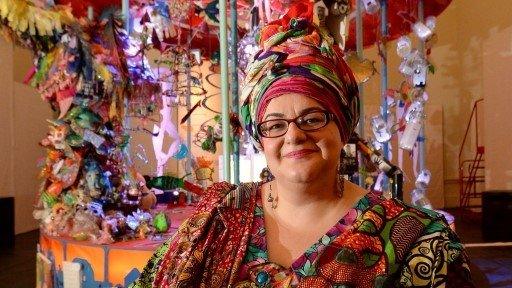
- Published17 September 2015
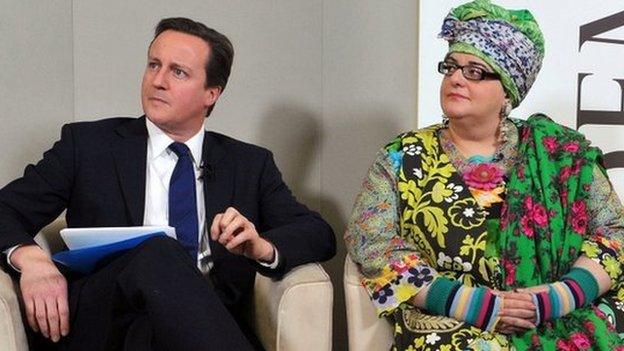
- Published5 August 2015
